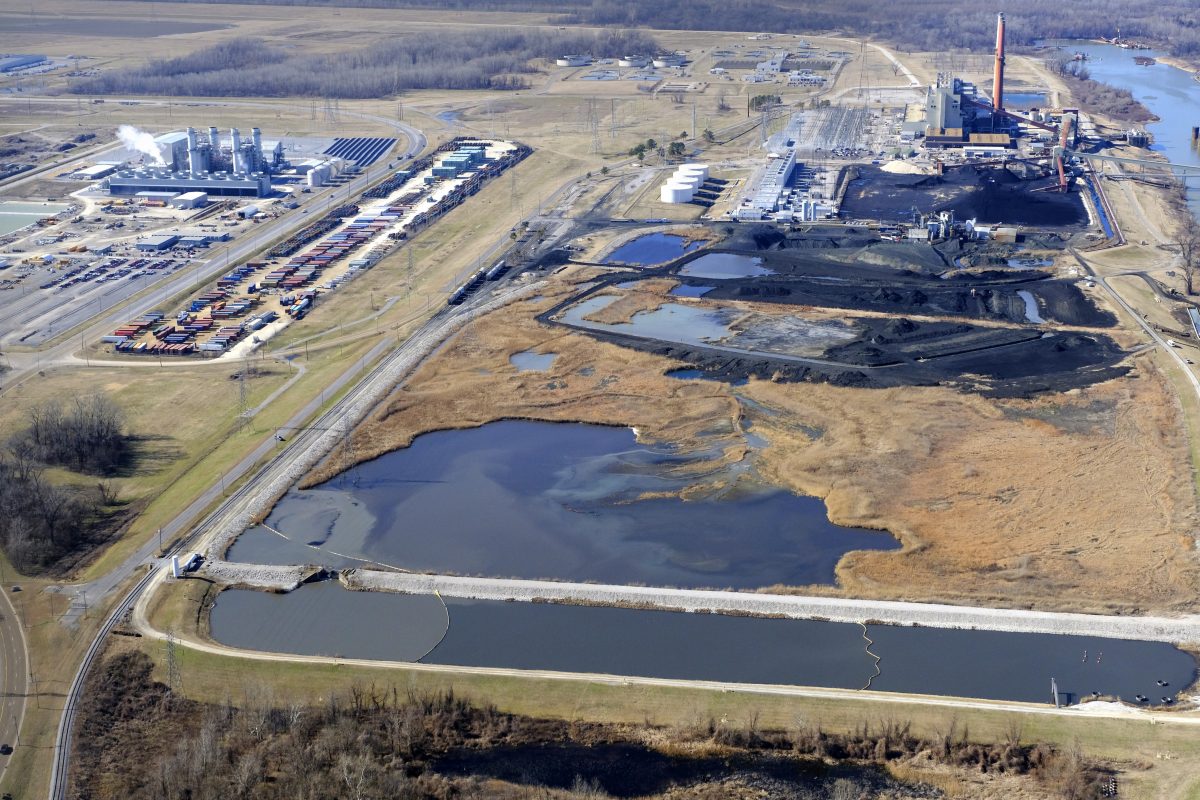A Memphis City Council committee wants another formal review of Tennessee Valley Authority’s (TVA) plan to dump coal ash here, citing concerns from residents and a murky process with little cooperation from the power provider.
Nearly 3.5 million cubic yards (nearly 707 million gallons or 2,169 acre feet) of coal ash were left behind when the Allen Fossil Plant stopped generating electricity in 2018. The ash is now stored in two massive ponds at the old coal-plant site, just south of McKellar Lake and Presidents Island. One pond on the west side of the campus was buried years ago and now looks like a large, grassy park. The other pond — the East Ash Pond — is murky, black, and lifeless but for some brawny strands of what appears to be sawgrass.
Under these ponds, and because of the coal ash in them, TVA found high levels of arsenic and other toxins in groundwater. Arsenic levels were more than 300 times higher than federal drinking water standards. The toxins were deemed a threat to the Memphis Sand Aquifer, the source of the city’s famously pure drinking water, and TVA made plans to remove the coal ash.
But the TVA failed to tell the council in 2020 just where they’d dump the coal ash. The site was revealed in 2021 as the South Shelby Landfill and the destination was criticized as it would bring trucks, noise, traffic, and air pollution to neighborhoods along the path. Many of those would be predominantly Black neighborhoods.
Since then, council members said Tuesday they’ve heard myriad concerns from constituents about the plan.
“The folks in South Memphis have urged us to ask TVA to do something that TVA seems unwilling to do,” said council member JB Smiley.
Smiley was an original sponsor of Tuesday’s resolution, which asks for TVA to conduct a Supplemental Environmental Impact Statement (SEIS) under the National Environmental Policy Act (NEPA).
The report would “provide residents of South Memphis site-specific information about the impacts of TVA’s decision to move coal ash and to provide a meaningful opportunity for the affected community to be heard on how these impacts will affect them.” The report would give the “most current, detailed, and informative information now that the final destination and transportation plan” for the coal ash has been made public.
Council member Chase Carlisle said while he feels someone is “looking just to beat on TVA,” he said he was “disappointed” in the dialog between TVA, Republic Services (the company that is set to haul the coal ash), and the council. Straightforward questions were not given straightforward answers, he said. Answers to follow-up questions went unanswered during the process.
“I was very disappointed in what I thought was going to be a very transparent, ongoing dialog about how we could look for alternative solutions to an issue that concerns a great many people,” Carlisle said. “Instead it was, ‘we’re not coming back and we’re just going to move forward.’”
TVA said its previous review of the situation should stand as “no new information has become available that would change the conditions or conclusions” of it.
“Over the last five years, we have engaged with and listened to the Memphis community about the Allen restoration project,” said TVA spokesman Scott Brooks. “We share the same objectives of prioritizing safety and environmental stewardship while completing the project in a timely manner.
“We are fulfilling our promise to protect the Memphis aquifer, safely remove the coal ash and store it in a highly-engineered, lined landfill, and restore the Allen site for the benefit of the community.”
